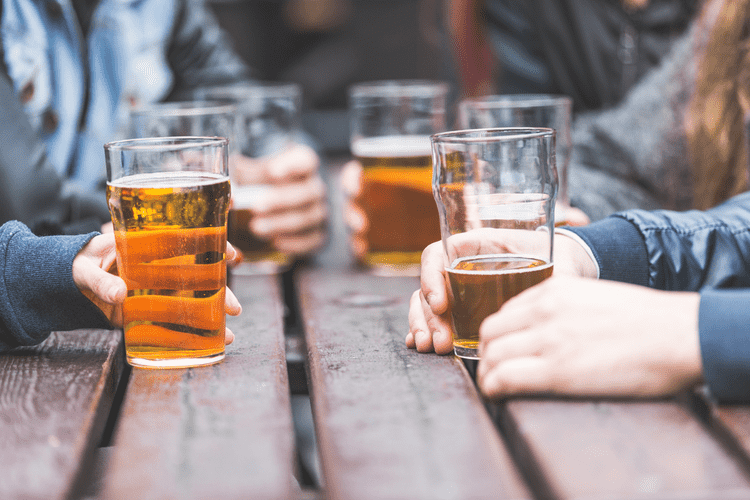Most cases of alcohol-induced dizziness can be confused with alcohol-induced vertigo. However, you should seek medical attention if the symptoms do https://amoramar.com.mx/2021/03/31/alcoholism-top-10-health-questions-answered/ not resolve once you are sober. Long-term excessive alcohol consumption causes chronic dehydration and anemia, both of which cause problems with balance. Additionally, drinking can cause a B1 vitamin deficiency, which is linked to issues with vertigo. Optic neuropathy is a condition which is developed as a result of drinking or smoking excessively.

Alcoholic Eyes: How Alcohol Consumption Affects the Eyes
The Centers for Disease Control and Prevention (CDC) defines moderate drinking as up to one drink per day for women and up to two drinks per day for men. Alcohol can lead to temporary vision issues like blurred vision, double vision, and difficulty focusing. This happens due to alcohol’s effects on the muscles controlling eye movements and its overall depressant effect on the central nervous system. Often when a person suffers from alcohol addiction, they have “alcoholic eyes.” The term refers to the harmful effects excessive alcohol consumption has on a person’s eyes and vision.
Why Does Alcohol Blur Your Vision? Exploring The Causes Of Blurry Vision After A Night Of Drinking
- Alcohol is a diuretic that contributes to dehydration, light sensitivity, increased urine production, and reduced tear production.
- The pupil allows light into the eye but, if the iris doesn’t contract quickly enough when exposed to bright light, it lets far too much light into the eye.
- The good news is that many of these long-term effects can be slowed down, or even reversed, with proper treatment and sobriety.
- Therefore, it is essential to consult a healthcare professional if you are experiencing persistent or recurring vision problems after consuming alcohol.
This disease doesn’t lead to complete blindness, however, and it’s not painful. The autonomic nervous system controls involuntary functions like pupil constriction and dilation, as well as the eye’s ability to adjust focus, known as accommodation. Alcohol can disrupt this control, leading to slower pupil reflexes and impaired accommodation dynamics, affecting the speed and accuracy with which the eyes can change focus.
Increased Sensitivity to Light
On the other hand, chronic and heavy alcohol use can contribute to a long-term increase in eye pressure. Furthermore, alcohol can affect the vestibular system in the inner ear, which is responsible for maintaining balance and coordinating eye movements. Disturbance to this system may also contribute to blurry or double vision. Alcoholic eyes can vary in appearance, but the most common signs of alcoholic eyes are puffy eyes, dry and glassy eyes, and bloodshot eyes. At the cellular level, alcohol affects the retina’s ability to adapt to different light conditions. This explains why people often experience increased sensitivity to bright lights when drinking.

It can also impact the visual cortex in the brain, affecting clarity in dim lighting. These effects can make tasks like driving extremely hazardous, especially at night or in low-visibility conditions. Alcohol can also cause changes in colour perception and light sensitivity, further impairing vision.
Non Alcoholic Drink Tasting with Moment
Support and resources blurry vision hangover are available, and taking action can protect your eyes and overall well-being. Don’t wait until the effects become more serious; make your eye health a priority today. Heavy drinking increases the risk of developing cataracts, leading to the clouding of the eye’s lens.
- One condition that can cause blurry vision after alcohol consumption is diabetic retinopathy.
- The likelihood of experiencing blurry vision after alcohol consumption is also influenced by the amount and frequency of alcohol consumed.
- However, when alcohol is consumed, it slows down the reaction time of these muscles, making them less responsive to changes in light intensity.
- Read on to learn more about drunk eyes and the effects of alcohol on your vision.
- Taking breaks from activities that strain the eyes, such as reading or using electronic devices, can also be beneficial.
When someone drinks alcohol, it slows down the rate at which neurotransmitters are firing in his or her brain. Neurotransmitters are chemical messengers that communicate information throughout the brain and the body. The delay in sending those messages means that Drug rehabilitation the person’s eye muscle coordination becomes sluggish.